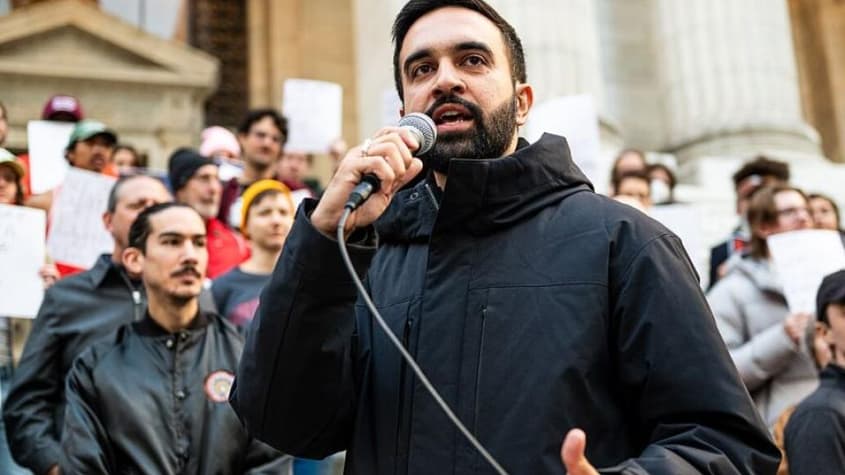Zohran Mamdani’s successful campaign benefited greatly from New York’s funding innovations.
Sat 8 Nov 2025 06.00

Image: Wikiwand/Wikimedia
In politics, money is power, meaning rules about how money can be raised and spent it have significant implications for our democracy.
From advertising, to hiring staff, to paying the deposit required to nominate, political finance laws influence how campaigns are won and lost.
Earlier this year, Labor and the Coalition came to a last-minute deal to rush through sweeping changes to political finance, making it harder for independents and new parties to challenge incumbent MPs, and easier for those in power to stay there.
Instead of changing political finance laws to shield the major parties, the 48th Parliament could take a different path, and look to the US.
While it is unusual to suggest looking to the US for how to fix the problem of money in politics, some American cities and states have tried bold new policies to restore the power of individual voters and smaller donors, compared to larger ones.
In June, then underdog, now mayor-elect Zohran Mamdani won a clear victory in the New York mayoral primary.
There are many reasons for his success, including his popular progressive policies, an electorate tired of establishment politicians, and his grassroots campaign that knocked on more than one million doors.
But one major, if overlooked, factor was the city’s matched public funding system.
New York provides $8 for every $1 donated to a candidate by a resident of the city. So if a resident donated $100, the city would chip in $800. The maximum is $2000 per resident (with the donor contributing $250) and $8 million in total. Mamdani raised less money than his billionaire-backed rival, but from ten times the number of individual donors, meaning he received significantly more public funding. He was so successful in this effort that he reached the cap on public financing and had to tell his supporters to donate to another candidate instead.
Without the matched donations system, Mamdani would have been at a significant financial disadvantage compared to his billionaire-backed opponents. But with it, he was able to fund a full-sized campaign and ultimately win the primary election, and then the mayoralty.
On the east coast of the US, a system of “democracy vouchers” has been similarly successful. Residents of Seattle receive four $25 vouchers in advance of city elections they can give to candidates they support. In 2013, before democracy vouchers, less than 2% of Seattle’s voters donated to political campaigns, concentrated in the city’s wealthiest neighbourhoods. But the vouchers changed that. In 2017, 5% of voters donated, and then 10% in 2021 – the highest rate in the country.
The people donating became much more diverse, hailing from all areas of the city instead of only the wealthiest suburbs. Vouchers encouraged more people to get involved in the political process, with the average number of candidates almost doubling after they were introduced. They also helped new challengers compete against established incumbent politicians, whose chances of re-election decreased significantly after the system was implemented.
Reforms such as these would likely get more Australians involved in our democracy. Australia Institute research shows almost four in ten Australians would use democracy vouchers, if available in Australia. That’s more than twice the 16% of Australians who are currently likely to donate to candidates under the existing rules. Vouchers would reduce the relative influence of big donors and give everyday people more power in politics.
Money is power in politics. And if we leave it in the hands of the few, then that’s where it’ll stay.
